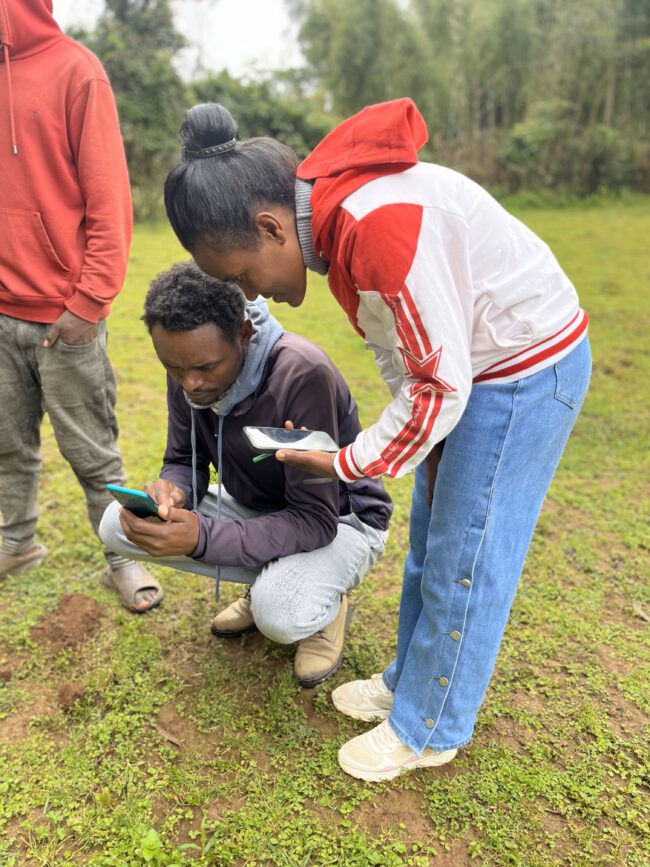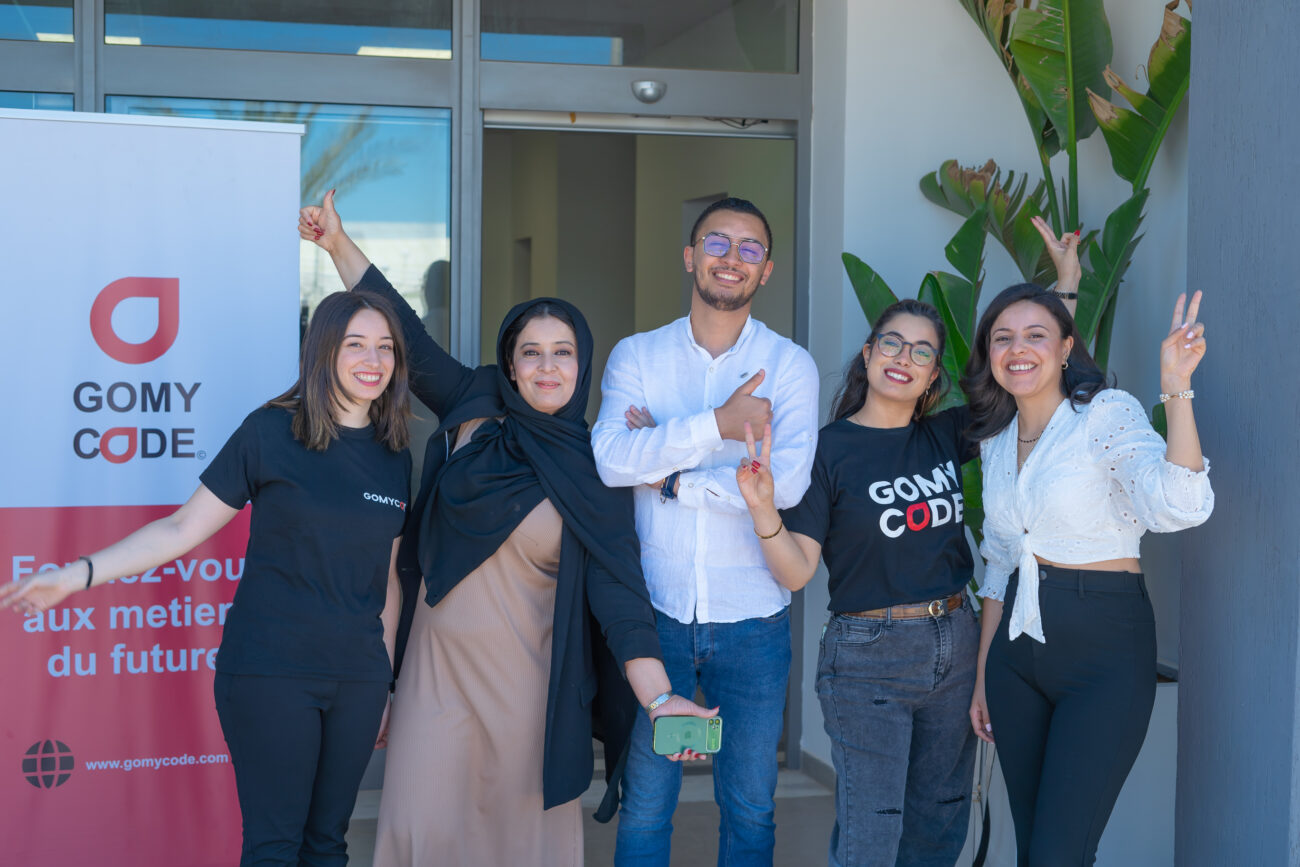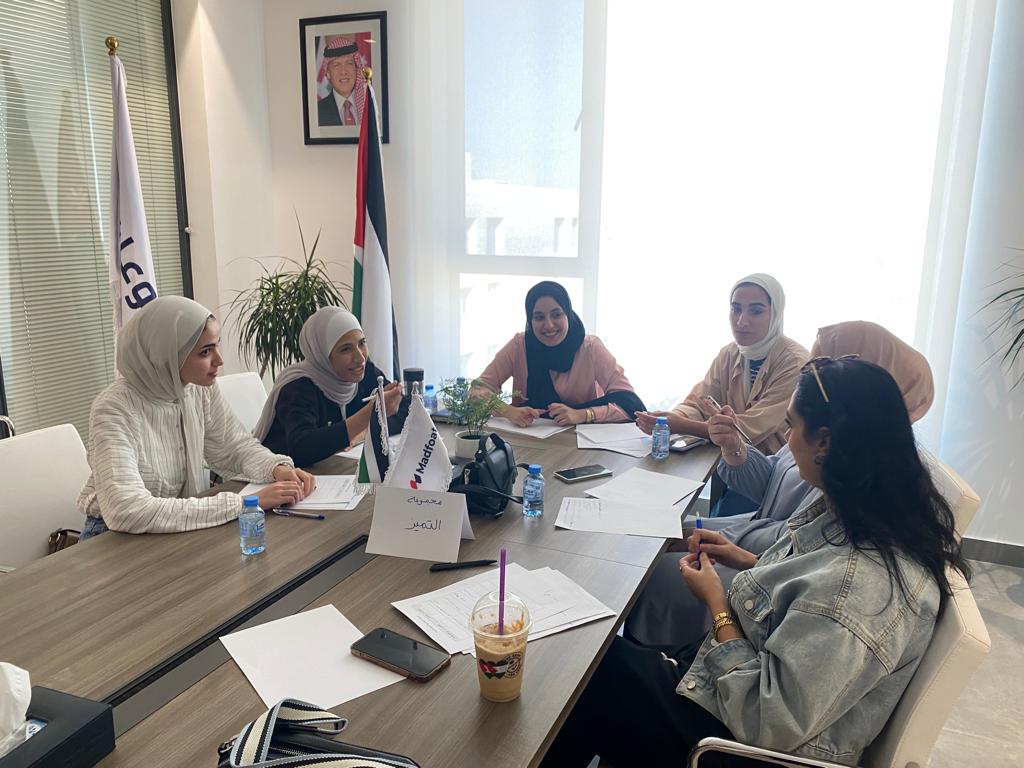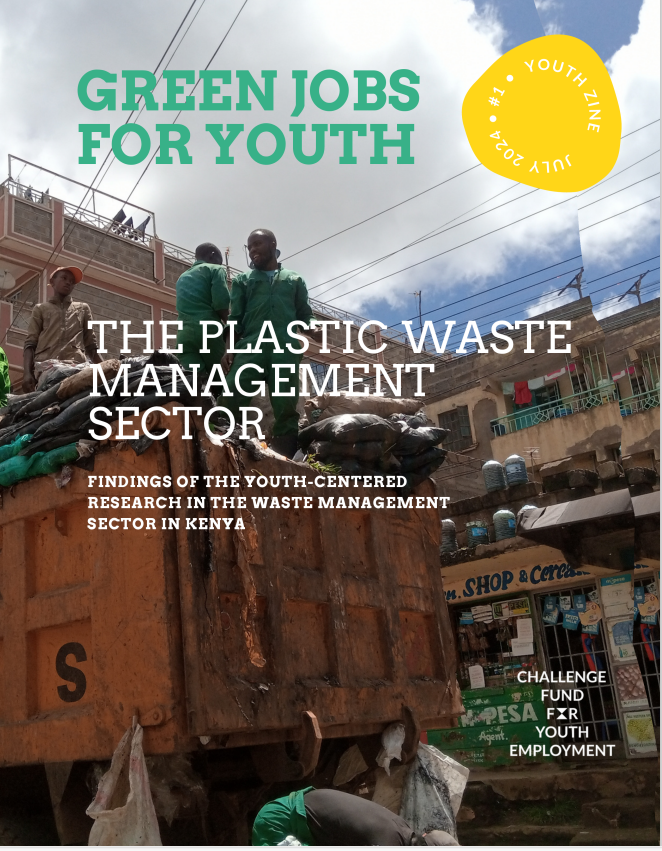Quicklinks: Our Impact – Green Jobs – Digital Jobs – News
Creating, matching and improving 230.000 jobs for young women and men
in Subsaharan Africa and the Middle East.
The Challenge Fund for Youth Employment (CFYE) is a 7-year programme funded by the Netherlands Ministry of Foreign Affairs.
The Fund is managed by the Palladium Group, Randstad and VSO.
Our Impact
Online Care, Offline Impact: Fatima Ibrahim’s Journey of Delivering Care Beyond Physical Boarders
 Sade Aalto-Setala
Sade Aalto-Setala
 May 21, 2025
May 21, 2025
Fatima Ibrahim, 31, knows what it means to support people through their most vulnerable moments. As a nurse with over six years of experience across various medical fields, such as paediatric care, surgery, obstetrics, gynaecology, IVF, and internal medicine, helping others is close to her heart. But what motivates her on a more personal level, is her mother.
“My mother has suffered from diabetes for a long time,” Fatima reveals. “As for me, not only did I learn to help patients, but I also learned how to help my mother.”
Fatima and her mom are not alone in this. Diabetes is a chronic disease affecting up to 15% of Egyptians causing major health issues, especially if poorly managed. In the Egyptian healthcare sector, there is a lack of formal structure that would guide diabetic patients through their journey. Besides that, people often lack awareness about the illness and are left undiagnosed or untreated until severe irreversible damages occur. Through CFYE funding, the Al Mouneer powered Dru app is not only tackling these issues in the healthcare sector, but is also empowering young people, such as Fatima, with decent employment opportunities.
Read More
More Impact Stories:
Resilience in Action: Darlene Clarke-Okah’s Menstrual Health Empire and Her Entrepreneurial Journey with Shecluded
 Faatimah Clarke
Faatimah Clarke
 November 18, 2024
November 18, 2024
Darlene Clarke-Okah’s earliest memories of adversity began in Liberia amidst the civil war. At just nine years old, she was left on her own as her father, a soldier, was forced to leave. The challenges she faced during this time were immense, but they also shaped her resilience and determination, setting her on a path to become the dedicated entrepreneur she is today, with support from Shecluded’s CFYE-backed FINWOMEN Programme.
Read More
Poultry to Prosperity: Marwa’s Journey to Success Through Small Business Loans
 Sade Aalto-Setala
Sade Aalto-Setala
 October 21, 2024
October 21, 2024
Inspired by the idea of creating a cleaner and safer environment, James came up with an innovative solution— waste management.
Read More
Low Heels, High Ambition: Bariat Lawal’s Passion turned Fashion through Shecluded’s FINWOMEN Programme
 Faatimah Clarke
Faatimah Clarke
 September 11, 2024
September 11, 2024
As the Fall Fashion Week drapes a veil of haute couture on cities like London, New York, Paris, and Milan, fashion enthusiasts and icons from all over the world gather in exquisite designs and pieces, serving as a testament to the intricate relationship between creativity, culture, and global industries. Fashion, as a key component in emerging markets, drives not only artistic expression but also economic growth, job creation, and the empowerment of women worldwide.
Read More
Online Care, Offline Impact: Fatima Ibrahim’s Journey of Delivering Care Beyond Physical Boarders
 Sade Aalto-Setala
Sade Aalto-Setala
 May 21, 2025
May 21, 2025
Fatima Ibrahim, 31, knows what it means to support people through their most vulnerable moments. As a nurse with over six years of experience across various medical fields, such as paediatric care, surgery, obstetrics, gynaecology, IVF, and internal medicine, helping others is close to her heart. But what motivates her on a more personal level, is her mother.
“My mother has suffered from diabetes for a long time,” Fatima reveals. “As for me, not only did I learn to help patients, but I also learned how to help my mother.”
Fatima and her mom are not alone in this. Diabetes is a chronic disease affecting up to 15% of Egyptians causing major health issues, especially if poorly managed. In the Egyptian healthcare sector, there is a lack of formal structure that would guide diabetic patients through their journey. Besides that, people often lack awareness about the illness and are left undiagnosed or untreated until severe irreversible damages occur. Through CFYE funding, the Al Mouneer powered Dru app is not only tackling these issues in the healthcare sector, but is also empowering young people, such as Fatima, with decent employment opportunities.
Read More
CheckUps – Revolutionising Healthcare Access and Job Creation in Kenya
 Sade Aalto-Setala
Sade Aalto-Setala
 February 24, 2025
February 24, 2025
CheckUps, an urgent care service offering both online and in-person medical dispatch, is transforming Kenya’s healthcare sector. By providing affordable healthcare for underserved Kenyans through an innovative financing model and a network of young nurses, CheckUps is addressing two critical challenges: limited healthcare access and high underemployment among medical professionals.
“The need for healthcare is massive. 20% of African households borrow monthly for health bills, while there are 20,000 nurses that are underemployed in Kenya. The healthcare sector should be one of the largest employers in Africa, but jobs are not being created,” explains Dr. Moka Lantum, CEO and CO-Founder of CheckUps.
By aligning healthcare payments with the irregular income flows of informal workers and the elderly, who struggle with lump-sum fees, CheckUps reduces annual costs by 60%. This approach improves health equity and expands employment opportunities. Currently, profit margins in the healthcare sector make it difficult for companies to hire staff. For example, on a $50 medication, the margin is only $7, and for generic medicines costing $5, the margin drops to just 7 cents. Such thin margins limit job creation, Dr. Moka Lantum demonstrates.
Read More
Youth Magazine: Findings of the Youth-Centered Research in the Waste Management Sector Kenya
 Faatimah Clarke
Faatimah Clarke
 July 22, 2024
July 22, 2024
This paper is about how to leverage green jobs to realise the transition to a green economy. The first step to achieving this is to create a better understanding of green jobs. To this end, following a literature analysis, we provide a mapping tool to help classify green jobs and measure their (potential) impact. The tool is based on four indicators: (i) sector; (ii) green business strategy; (iii) climate action; and (iv) green skills.
Read More
More Learning material:
Learning
Youth Magazine: Findings of the Youth-Centered Research in the Waste Management Sector Kenya
 Faatimah Clarke
Faatimah Clarke
 July 22, 2024
July 22, 2024
This paper is about how to leverage green jobs to realise the transition to a green economy. The first step to achieving this is to create a better understanding of green jobs. To this end, following a literature analysis, we provide a mapping tool to help classify green jobs and measure their (potential) impact. The tool is based on four indicators: (i) sector; (ii) green business strategy; (iii) climate action; and (iv) green skills.
Read More
Countries
Stay informed
Privacy notice
By submitting any of the forms on this website, you are consenting to receive emails from Palladium, on behalf of the Challenge Fund for Youth Employment. You can revoke your consent to receive emails at any time by emailing us on info@fundforyouthemployment.nl.
Read more here: Privacy Notice









